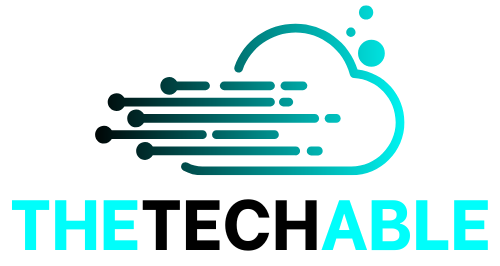In a digital landscape overwhelmed by data breaches, fragmented online identities, and security loopholes, Zeeroq emerges as a revolutionary concept and platform. Positioned at the intersection of cybersecurity, digital identity management, and blockchain technology, Zeeroq promises a seamless, secure, and user-centric solution for managing personal data in the digital age.
While it may sound futuristic, Zeeroq is a response to very real problems—loss of privacy, identity theft, and the lack of control individuals have over their own digital footprints. With growing public awareness and global shifts toward data sovereignty, Zeeroq is gaining attention as a powerful alternative to the outdated models of identity verification and access control.
The Vision Behind Zeeroq
The core idea behind Zeeroq is deceptively simple: give people control over their digital identities. In an age where tech giants harvest personal information, often without consent, and data leaks are common, Zeeroq introduces a system where the user—not the company—is the true owner of identity-related data.
This vision reflects a broader trend toward decentralization. Instead of relying on centralized servers or third-party verification systems, Zeeroq utilizes blockchain-based mechanisms, offering transparency, traceability, and immutability. The platform isn’t just about security—it’s about trust, ownership, and empowerment.
How Zeeroq Works: The Technology Behind It
Zeeroq combines multiple cutting-edge technologies to build its secure identity framework. At its foundation lies decentralized identity management (DID), supported by blockchain infrastructure, biometric authentication, and zero-knowledge proofs (ZKPs).
-
Decentralized Identifiers (DIDs): These allow individuals to create a self-sovereign identity that is not tied to a single institution, app, or company. Your ID becomes portable and secure across platforms.
-
Zero-Knowledge Proofs: With ZKPs, users can prove their identity or a fact about themselves (like age or nationality) without actually revealing the data itself. This makes personal verification more secure and private.
-
Blockchain Security: By leveraging blockchain, Zeeroq ensures that once identity data is verified and recorded, it can’t be altered or deleted maliciously. This creates a tamper-proof and transparent identity log.
-
Biometric Integration: For added convenience and security, Zeeroq integrates biometric data like facial recognition or fingerprint scanning for real-time access control.
The result is a system that is not only secure and efficient but also user-friendly and inclusive.
Why Zeeroq Matters in Today’s Digital World
Zeeroq is not just another tech platform—it addresses a foundational flaw in how digital identity has been handled for decades. Currently, people use dozens of usernames and passwords, give away personal information on countless platforms, and are vulnerable to phishing, impersonation, and surveillance.
Zeeroq counters these issues by consolidating identity into one secure, user-controlled profile. This matters because digital identity is the gateway to almost everything in modern life: banking, travel, healthcare, social media, work, and more. With Zeeroq, this gateway becomes fortified, simplified, and fair.
Key Benefits of Using Zeeroq
1. Privacy First:
Unlike conventional identity systems, Zeeroq doesn’t store your data in centralized databases that can be hacked. You control who gets access, for how long, and for what purpose.
2. Interoperability:
A single Zeeroq identity can be used across platforms, apps, and even borders. This means less friction, fewer logins, and smoother digital interactions.
3. Enhanced Security:
With biometrics and blockchain, Zeeroq makes it nearly impossible for unauthorized users to access or forge your identity.
4. User Empowerment:
You’re not just a user—you’re the owner of your identity. You decide what information you share and can revoke access at any time.
5. Compliance and Transparency:
With global data regulations like GDPR and CCPA gaining traction, Zeeroq helps organizations and users stay compliant by tracking and documenting consent and access rights.
Potential Applications of Zeeroq
Zeeroq has the potential to revolutionize multiple industries through its secure identity solutions. Here’s a look at where it’s headed:
-
Banking and Finance: Streamlining KYC (Know Your Customer) processes while ensuring data protection.
-
Healthcare: Secure sharing of medical records between patients and providers.
-
Education: Portable academic credentials that can be verified instantly.
-
Government Services: National identity cards, e-voting systems, and cross-border verification.
-
Corporate Access Control: Employee access management that reduces internal threats and credential leaks.
This broad applicability makes Zeeroq not just a niche tool but a possible foundation for digital infrastructure in the future.
Zeeroq vs Traditional Identity Systems
Traditional systems rely on central authorities—like governments, banks, or tech companies—to issue and verify identities. These systems often involve:
-
Vulnerable databases
-
Long verification procedures
-
Risk of human error
-
Loss of privacy
Zeeroq challenges this by enabling self-sovereign identity. The individual becomes the sole custodian of their digital self, reducing reliance on third parties. This flips the traditional power dynamic and paves the way for a more democratic internet.
Challenges and Considerations
Despite its promise, Zeeroq isn’t without challenges. The adoption of decentralized identity technologies is still in early stages, and mainstream users may find the concept unfamiliar or intimidating. There are also technical hurdles around integration, interoperability standards, and biometric data protection.
Moreover, legal frameworks across countries may vary, posing regulatory complications. Ensuring accessibility for all—especially non-tech-savvy users or those without advanced devices—is another consideration Zeeroq must continue to address.
The Future of Zeeroq
The future of Zeeroq looks promising, especially as concerns around digital identity and privacy continue to grow. As more institutions, developers, and governments become aware of the limitations of traditional ID systems, Zeeroq’s decentralized approach is likely to gain ground.
Partnerships with digital service providers, inclusion in mobile operating systems, and integration with blockchain-based apps (like DeFi and NFTs) will be key to its expansion. Eventually, Zeeroq could become the default standard for identity verification on the internet.
Final Thoughts
In a world where your data is often more valuable than your voice, reclaiming ownership of your digital identity is not just smart—it’s essential. Zeeroq offers a bold new path forward: one where you can be sure of who you are online, where your privacy is respected, and where your identity can move with you securely, across digital and physical borders. Whether you’re a tech enthusiast, a concerned citizen, or a business leader, Zeeroq’s model deserves attention. It isn’t just another platform—it’s a blueprint for the future of human identity in the digital age.

